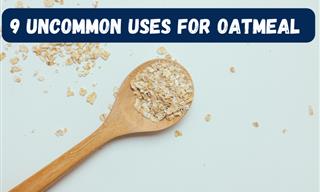

As a result, the FDA is warning lovers of licorice to avoid eating this sweet treat. This is because licorice contains a compound called glycrrhizin, which, in large doses, can be harmful to the heart. This compound can cause potassium levels in the body to fall, which can lead to an abnormal heartbeat, swelling, lethargy, congestive heart failure, and high blood pressure.
Glycyrrhizin is particularly harmful to people over the age of 40: For people in this age group, eating 2 ounces (56 grams) of black licorice a day for a period of at least two weeks could lead to an irregular heartbeat. Black licorice is often sold in 2-ounce bags.
Dr. Linda Katz, director of the Office of Cosmetics and Colors at the Center for Food Safety and Applied Nutrition at the FDA, noted that the health issues caused by black licorice are not permanent. A person’s potassium levels will usually return to normal after that person stops eating that food.

The FDA gives the following advice for black-licorice lovers:
• Don’t eat large amounts of candy at once, no matter what your age is.
• If you have eaten a large amount of black licorice and have muscle weakness or an irregular heartbeat, stop eating the candy, and contact your doctor.
• Black licorice can interact with some herbs, medications, and supplements. Ask a doctor any questions you might have about possible reactions.
Source: livescience
Images: depositphotos

21 Useful Guides, Charts, and Maps All of Us Need
These handy charts are full of useful information that we all need.

Drinking Too Much Water is Worse Than Drinking Too Little
It’s always important to remember not to get dehydrated, but you need to know that there is such a thing as overhydration, and it can be very dangerous too.

WARNING: Never Give a Child Under the Age of 4 These Foods
These foods pose the biggest choking risk to children under the age of 4.

Never Give a Child Under the Age of 4 These Foods!
These foods pose the biggest choking risk to children under the age of 4.

Knowing These Meningitis Symptoms Could Save Your Child!
Meningitis is an extremely dangerous disease that children seem to be more susceptible to. Here are the symptoms every parent should keep an eye out for.

Why Drinking Too Much Water is Worse Than Too Little
It’s always important to remember not to get dehydrated, but you need to know that there is such a thing as overhydration, and it can be very dangerous too.

Click to See Unbelievable Uses for These Household Items
Click to learn more! We've collected Ba-bamail's best list of tips and alternative uses for things you've got lying around the house.

Financial Planning for Widowhood - 7 Important Tips
Losing a spouse can be extremely stressful and overwhelming. But there are some important financial steps you must take immediately.

10 Super-Effective Tips No One Else Will Tell You About
Fix and do just about anything with the following 10 supercool tips and tricks!
 1:45
1:45
Chef's Tips: Chop Your Veggies Quickly Like a Pro
If you want to save yourself some time in the kitchen, follow these fantastic veggie chopping tips from the experts!

Reaching age 112: People Share Their Long Living Secrets
10 of the oldest people on earth would like to share their secret...

Body Wash vs. Bar Soap: Which One Should You Choose?
Body wash or shower gel? Which one do you prefer? If you’re uncertain, we’ll help you find out when to use each one.

14 Fall Plants Perfect for Brightening Up Your Garden
These 14 perennial flowers can be enjoyed long after summer has ended, and just look at how beautiful they are! How will they look in your garden?

9 Uncommon Ways to Use Oatmeal in Your Home
Oats are so useful outside the kitchen too!

Are Your Sofa Cushions Sagging? Here's What to Do
Got saggy sofa cushions? Here's what to do.

Clean Your Washing Machine With This Easy DIY Cleaner
This natural DIY formula will keep your washing machine safe and clean.

Here’s Why You Should Start Saving Pasta Water
What if we told you that you have been flushing something many chefs call ‘liquid gold’ down the drain all these years?
 4:29
4:29
Important: How to Stay Calm Under Pressure
This video will teach you one of the most important skills in the world - how to stay calm under pressure

Tired of Feeling Angry? Use the Following Pressure Points
Learn the pressure points that help relieve feelings of frustration, anger, and worry.

Don’t Let Broken Zippers Bother You Again. I’ve Found a Fix!
Don’t throw away your favorite pair of pants because of a broken zipper. Grab and needle and thread and try this easy fix.

12 Things Veterinarians Want Pet Owners to Know
To be in the know, you better read the 12 things that veterinarians want to tell you - the pet owners.

Practical Tips on Adjusting a Home to be Senior-Friendly
Take note of these useful tips that will help you make your home more accessible and safe for your life ahead.

10 Essential Sewing Tips You Cannot Do Without
Whether you are experienced at sewing, or a complete novice, here are 15 simple sewing tricks you won't be able to live without.

15 Golden Tips to Start Living a Better, Happier Life...
These 15 little tips sound like small things, but they can make your life that much better.
 1:30
1:30
The Trick to a Perfect Flower Arrangement is Amazingly Easy
Sometimes, the simplest ideas yield the best results - A simple trick that makes flower arrangement as easy as pie!

Here's What You Do With Your Leftover Plastic Spoons!
I never thought there was so much to do with this simple single-use utensil.

10 Easy Ways to Remove a Troublesome Splinter
Splinters are painful and can be a nightmare to remove. However, the following 10 home remedies make removing a splinter easier than ever before!

9 Tips to Keep Your Sweater from Shedding This Winter
Winter is almost here, and it’s time to protect your sweaters from shedding.

15 Reasons to Never Throw Away Used Corks Again!
There's no limit with what you can do with a simple collection of corks. Make your used corks useful again with these brilliant DIY ideas.

Ever Notice How All of Women's Problems Begin with MEN?
Ever Notice How All of Women's Problems Begin with Men?
 6:31
6:31
10 Everyday Home Hacks To Make Your Life a Breeze
These terrific life tips will make you wonder why you've never thought of them before...
 3:13
3:13
Tips and Tricks to Help You Choose the Freshest Vegetables
With the help of these science-based tricks, you will only choose the best vegetables at the supermarket to bring back home.

Bananas Can Do So Much More Than Just Being Food...
Bananas are more than just food, there are at least 15 more uses for them...

Who Knew Vick's VapoRub Was So Incredibly Versatile?
Is there any product in your medicine cabinet that is more versatile than Vick's VapoRub? Here are 7 innovative ways for you to use it.

5 Life-Changing Tips for Investing In Your 50+ Years
Looking to secure your cash as retirement approaches? Check out these top five investment accounts for individuals over 50.

Maintain Your Brain: 15 Methods to Improve Brain Function
Like our muscles, the brain can also be strengthened and maintained in excellent condition, with proper practice. Learn 15 simple ways to train your brain today!

Guide: The Alternative Uses of 21 Common Food Products
This guide will give you the useful tips and helpful information you need to find alternative uses for most of your common food products. You'll be amazed at the surprising uses for some of these common food items.
 3:39
3:39
Tutorial: How to Grow Roses Using the Stem Cuttings
This tutorial is only a few minutes long, but it gives you a very simple, straight-forward and practical way of growing your own rose bush from stem cuttings.
 3:37
3:37
Your Saucepan is More Useful Than You Thought...
If only I had known these priceless kitchen hacks sooner!

How to Help Prepare for a Snow Storm – 11 Vital Steps
Don't let a winter storm take you by surprise. Prepare with these important steps.

A Must Have Kitchen Cheat Sheet to Help With Any Recipe!
Simple fact sheets that will turn any cooking job easier to understand.

21 Things a Burglar Could Tell You, But Certainly Won't
This post could save your possessions, or even your life, someday. That's why you have to make sure that you read it!

12 Fruit and Vegetables That are Dangerous to Consume
Which fruit and vegetables have the most pesticides on them? Find out here!
 2:00
2:00
Learn to Make a Chocolate Bowl in 2 Minutes Flat!
let's learn how to quickly and easily make chocolate bowls that'll make everyone's day.

Enrich Your Knowledge with These Amazingly Useful Charts
Save these useful charts today! We guarantee they will come in handy…

Your Ultimate Guide to Wearing that Suit!
A beginner's guide to wearing a suit the right way.

14 Surprising Foods You Can Indulge Without Gaining Weight
Here are 14 nutritious foods you can eat as much as you want without feeling guilty or afraid that you’ll gain weight. Enjoy!


